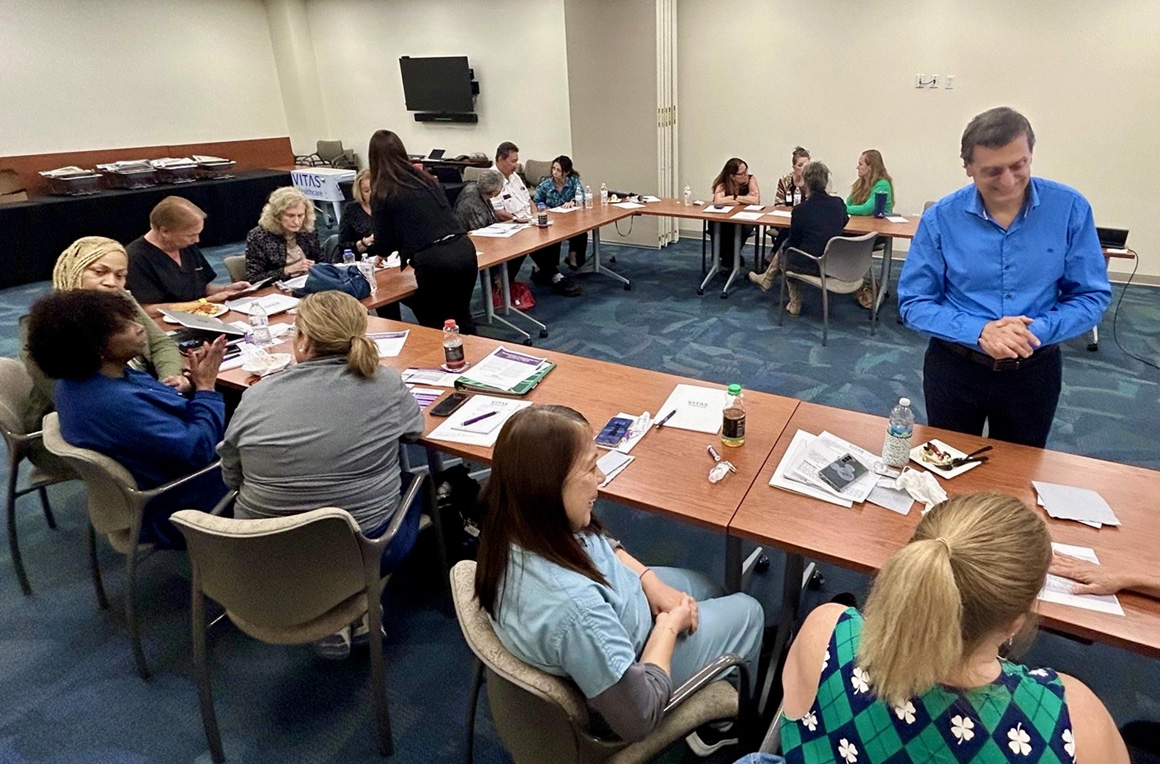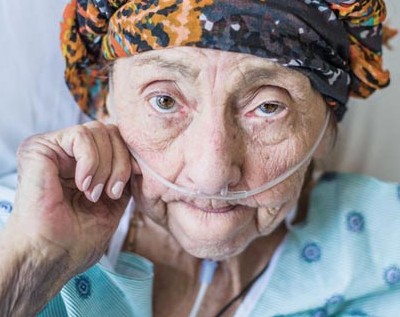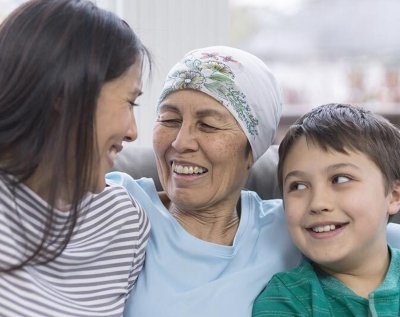Goals-of-Care Conversations Empower Practitioners to Initiate Vital Discussions
Goals-of-care conversations, including end-of-life discussions, improve patient and family outcomes. Yet, an overwhelming majority of clinicians do not report feeling comfortable “having the hospice discussion.”
VITAS' Goals-of-Care Preceptorship Program was created to help assuage this reluctance.
“Having difficult conversations is never easy, and many clinicians do not have the training to approach these, making it a barrier to getting started,” explains VITAS Chief Medical Officer Dr. Joseph Shega. “Also, clinicians fear ‘hurting’ patients and families with information. Naturally, they want to protect them even though it may inadvertently be more hurtful than helpful.”
What Happens When Patients Do Not Know Their Options
Without having goals-of-care conversations, patients and families endure over-medicalized care in the last months of life. This can include increased ED visits, hospitalizations with ICU stays, skilled care, and procedures and other diagnostic tests which reduce quality of life. These also increase healthcare and patient and family costs—and do not prolong life.
“If no one talks about what is actually happening, patients end up being in and out of the hospital and skilled facilities and receiving care that is not consistent with their wishes and values,” says Dr. Shega.
The goals-of-care conversation prompts an insightful reflection on what constitutes a meaningful end-of-life process.
“Patients and families can identify what is important to them. Having these conversations helps ensure their care matches their wishes,” explains Dr. Shega. “The most common values at the end of life are to be at home and out of the hospital, get good pain and symptoms control, further relationships with loved ones, and not be a burden.”
Timely Transitions in the Continuum of Care
When patients who are seriously ill have passed the threshold of being able to receive curative treatment, their quality of life in their remaining weeks and months becomes a priority. Accessing the full benefits of hospice care enables them to receive clinical, emotional, and spiritual support. The sooner they gain access to these care resources, the better equipped they are for this end-of-life journey.
The three pillars to facilitate timely transitions to hospice are:
- Understand the benefits that come with hospice services
- Be able to identify when someone with serious illness has a life expectancy of six months or less
- Incorporate essential communication skills and a structured framework to have a goals-of-care conversation
Making the Conversation Easier: Goals-of-Care Preceptorship Program
VITAS created the Goals-of-Care Preceptorship Program in 2022 to increase the comfort of healthcare clinicians in initiating these vital conversations with patients. Leveraging evidence-based data, this certificate program helps physicians, nurse practitioners, advanced practice nurses, and physician assistants approach goals-of-care conversations with confidence.

Members of the Volusia Flagler Advanced Practice Nursing Council participate in a VITAS Goals of Care Preceptorship program in March 2024.
“We often hear: ‘I don’t have time’ or see avoidance altogether,” says Senior Vice President Erika Gaudio. “Yet we know patients want to hear from their healthcare professionals whom they trust the most. This program offers an interactive format in which physicians and advanced practice practitioners can role-play and learn from the various case studies in a safe space.”
Clinicians can complete the program in four or more hours. They learn:
- Module 1: Covers the typical clinical trajectories and value proposition of hospice
- Module 2: Helps identify patients who have a poorer prognosis and assess eligibility
- Module 3: Offers approaches to goals-of-care and end-of-life discussions
- Module 4: Prepares you to overcome challenges and enhance your communication skills
- Module 5: Provides a clinical scenario practice session with interactive role play and feedback from a VITAS preceptor
- Module 6 (optional): Offers a live patient encounter with structured feedback from a VITAS preceptor
The program contains five mandatory modules. The sixth module is optional. It consists of a goals-of-care conversation to be completed by the clinician with a patient in the presence of a preceptor who provides real-world feedback and additional resources if needed. An optional seventh module on the topic of cultural competency is expected to launch in 2024.
“Our hope is that providing clinicians foundational knowledge in the context of their current education and experience will help them feel more comfortable to engage in these conversations,” says Dr. Shega.
This article was originally published in August 2022 and updated in April 2024.
To sign up for our Goals-of-Care Preceptorship program, call us today.
Upcoming Webinars for Healthcare Professionals

Check Hospice Guidelines
Get diagnosis-specific guidelines in our hospice eligibility reference guide.
Hospice Guidelines by Diagnosis Refer Your Patient
